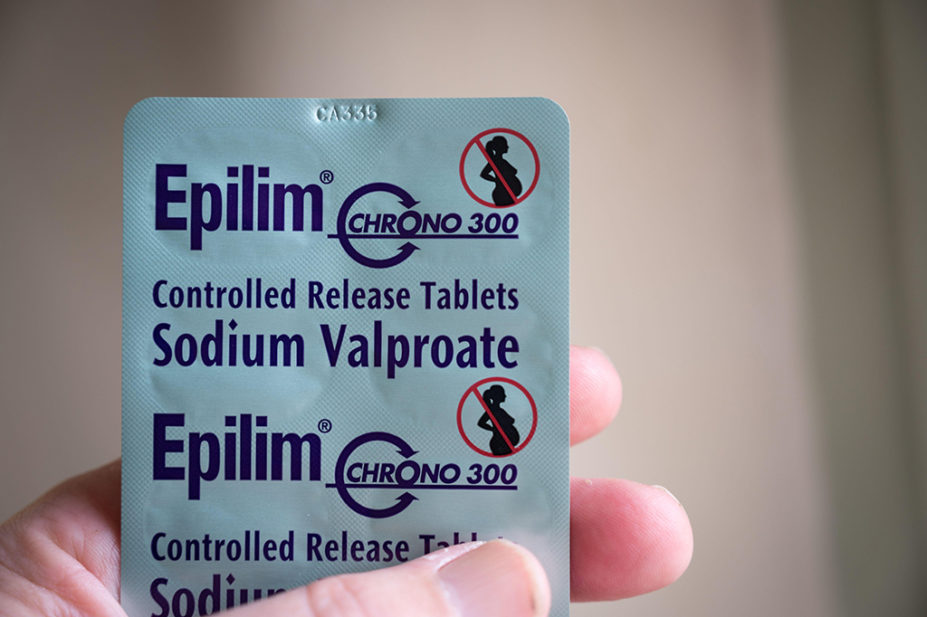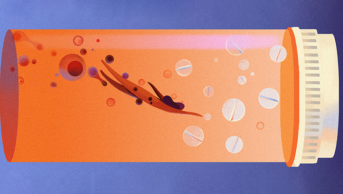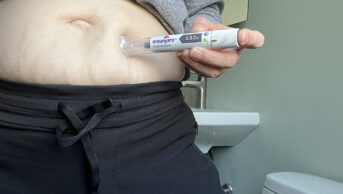
roger askew / Alamy Stock Photo
More needs to be done to provide support and compensation for women and children affected by sodium valproate and vaginal surgical mesh, says a committee of MPs.
The report from the House of Commons health and social care committee, published on 20 January 2023, is a follow-up to the ‘First Do No Harm’ report and raises concerns over the government’s response regarding a ‘redress scheme’ for those affected by harmful side effects from medicines or medical devices.
In July 2021, the government rejected recommendations to set up a redress scheme for people who experienced harm and have additional needs as a result of sodium valproate.
The committee said that the ‘claims gateways’ on the NHS Resolution website, which the government argued would provide further support to patients, were “little more than web pages” and of limited benefit to those who have repeatedly expressed their frustration in seeking redress.
“We have heard from those affected that this approach has not worked for them. These families need support, and they have waited too long,” the report said.
It added that it would “welcome” a statement from the minister on the review of redress and a possible redress agency, which would “provide redress using a non-adversarial process based on whether avoidable harm had occurred due to systemic failings”.
“We heard heartbreaking accounts of how the health system has failed to provide proper guidance, care and support to women and their families despite them having suffered avoidable harm as a result of medical interventions,” said Steve Brine, chair of the health and social care committee.
“Crucially, those affected have been unable to get rightful redress because to win a legal claim for compensation they had to prove blame on the part of the healthcare provider.”
The report looks in detail at the government’s response to to the Independent Medicines and Medical Devices Safety Review report ‘First Do No Harm’, published in July 2020. This report examined how the healthcare system in England responded to reports about harmful side effects from medicines and medical devices — specifically vaginal surgical mesh, sodium valproate and hormone-based pregnancy tests.
The report also highlighted that some families affected by foetal valproate spectrum disorder were seeing second-generation problems, with some of those exposed to sodium valproate before they were born seeing their own children affected by similar issues.
“In a letter sent to us following the session, Dame June Raine [chief executive of the Medicines and Healthcare products Regulatory Agency] stated that there is data suggesting that people affected by sodium valproate exposure as an unborn baby could potentially pass on effects to their children.
“Dame June also pointed to European-commissioned studies into transgenerational effects of sodium valproate which, following a delay due to COVID-19, is expected to publish results by the end of 2023.”
The committee said it was “encouraged” to hear about this research being forthcoming, but “concerned” that data on reports of transgenerational effects had not been collected in the UK.
“We cannot understand how it is not in the interest of the government to monitor transgenerational effects in those affected here in the UK, and would welcome an explanation from the Minister on this.”
Responding to the report findings, Henrietta Hughes, patient safety commissioner, welcomed the fact that the committee had again highlighted the need for proper financial redress for those harmed.
“Litigating against the manufacturers is not a sufficient way to set right an unfair situation,” she said.
Janet Williams and Emma Murphy, founders of the Independent Foetal Anti-Convulsant Trust, both gave evidence to inform the committee’s recommendations.
Responding to the resulting report in a joint statement, they said that they hoped that healthcare professionals prescribing valproate to women would ensure their patients all receive the Pregnancy Prevention Programme and “follow it to the letter”.
“So many women have been failed by a system which failed in itself to be rigorous enough,” they said.
“We encourage both the patient safety commissioner and the health minister to approach the topic of valproate redress with some urgency.”
In January 2023, an analysis of data from the Medicines and Pregnancy Registry carried out by The Pharmaceutical Journal revealed that NHS England had reduced the number of female patients who can become pregnant taking sodium valproate, from 27,411 in April 2018 to 19,766 in March 2022 — a 28% reduction.
In order to meet its own 50% reduction target, NHS England would need to reduce this figure by almost the same again by the end of 2023 (to 13,705).
In women who take sodium valproate while pregnant, around 10% of babies will have a birth defect, such as spina bifida or a cleft lip and palate, and around 30–40% children may have developmental disorders, such as poor speech or lower intelligence.


